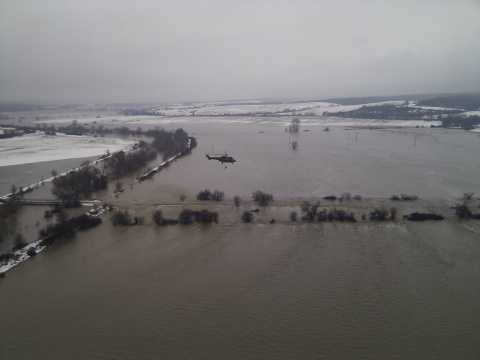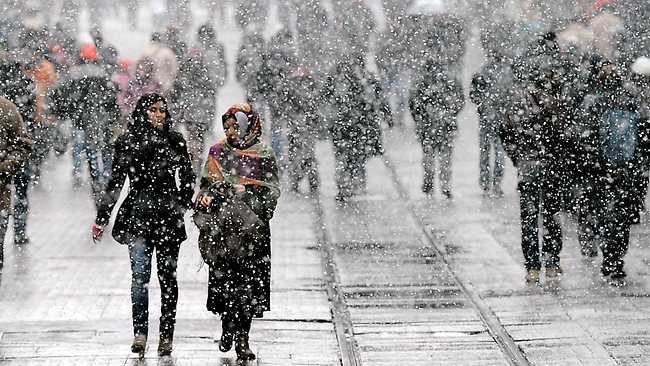Europe’s current cold snap held on in central and eastern parts of the continent on Monday, taking a high death toll.
Police in Poland said Monday the current wave of sub-zero temperatures has claimed 62 lives. Homeless shelters in the country have dropped their ban on intoxicated people as the mercury falls below -20 degrees Celsius during the night.
More than 300 have died Europe-wide due to the cold snap.
Unlike many places around Europe, most of Poland hasn’t seen fresh snow in weeks. But the bitterly cold weather has delayed trains in the country.
An entire village in Bulgaria was flooded when a dam wall broke due to melting snow.
In Hungary, municipal workers were clearing roads all Sunday night. More snowfall there is expected in the coming days. About 15 people have died as a direct result of record sub-zero temperatures.
Hungarian authorities are particularly concerned about the homeless or those who have no proper heating. Defective heating systems, releasing poisonous gases, contributed heavily to the death toll.
New homeless refuges were set up before the cold wave and some public buildings remained open for those in need of shelter. Authorities encouraged the public to check on their neighbors to see if they have sufficient heating available.
One of the new shelters gave Prime Minister Viktor Orban a chance for an undercover excursion. Mr. Orban went on an unscheduled visit at one of the new facilities. Escorted only by reporters of a tabloid newspaper, Mr. Orban spoke at length with the residents and concluded that the facilities were adequate.
Harsh weather in Russia also led to a shortage of natural gas supplies to European customers. Natural gas flows from Russia were still lower in Italy, Germany and Romania as of Monday morning, but were back to normal levels in other countries previously affected in the European Union, the European Commission said.
The big freeze has also affected political lives of at least two nations. Moscow’s coldest week so far this winter coincided with mass rallies for and against the country’s Prime Minister Vladimir Putin. With temperature below -20 degrees Celsius, crowds gathered in downtown Moscow for the opposition rally, and at a war memorial in Moscow’s western district for a pro-Putin demonstration.
Despite the opposition’s concerns that the cold would frighten people off, about 100,000 gathered for a march and a short rally. People at the pro-Putin rally, many of whom bussed to it from outside Moscow, had to sustain more speakers with longer speeches, but were given free hot drinks. The pro-government crowd was roughly as big as the opposition demonstration.
Cold weather also didn’t stop thousands from rallying on main squares in Bratislava and dozen more other places across Slovakia. Outrage over alleged graft at highest government levels prompted some 20,000 Slovaks to take parts in protests ahead general elections set for March 10.
In Turkey, Istanbul was bracing for more snow this week after last week’s precipitation brought chaos to the city. Turkish Airlines canceled a number of flights from Istanbul’s Ataturk Airport due to snow. The Municipality of Greater Istanbul declared a “red alert” in Istanbul, closed some highways around the city, and called for commuters to choose public transportation instead of private vehicles.
As Istanbul temperatures dropped to the coldest level since 1979, the governorate of Istanbul announced a “snow holiday” for its pregnant and disabled employees, and many private companies in the last week closed business early, too.
-Marcin Sobczyk in Warsaw, Gergo Racz in Budapest, Alexander Kolyandr in Moscow, Leos Rousek in Prague, and Ayla Albayrak in Istanbul contributed to this article.
via Central, Eastern Europe in Deep Freeze – Emerging Europe Real Time – WSJ.



